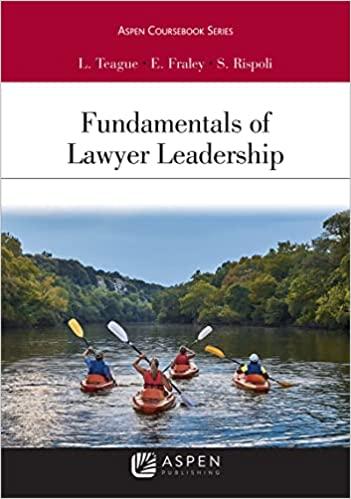Question
X and Y are charged with the offence of high treason. The allegations by the prosecution are that the two accused 'sold information crucial to
X and Y are charged with the offence of high treason. The allegations by the prosecution are that the two accused 'sold information crucial to the security of the Republic to an agent representing the country of Zamunda' before escaping to Silo, a country in the East African region. 1.1.1 The National Director of Public Prosecutions (NDPP) Nono Dodo, is of the firm view that the charges against the accused should, when they are arrested, be tried in the regional court 'due to the nature and seriousness of the offence'. Briefly confirm the correctness or otherwise of this decision. (2)
1.1.2 Name the process to be used or applied by the NDPP to bring X and Y from Silo to the Republic of South Africa to stand trial. (1)
1.1.3 Captain C is tasked with investigating the charges against X and Y. After their arrest, he sets out to ask questions to X and Y regarding what they know about said offence. Name the process used by C to ask questions. (1) 1.1.4 During the questioning process referred to in
1.1.3 above, both X and Y refuse to answer any questions, arguing that "Constitutionally, C does not have the authority question them if they do not feel like answering". Briefly confirm the correctness or otherwise of this assertion. (2) 1.1.5 The Director of Public Prosecutions (DPP), Dippy Pee, declines to prosecute the accused. She thereupon completes and signs a document in which she confirms, first, that she has examined the statements or affidavits on which the charge is based and, secondly, that she declines to prosecute at the instance of the state. Name said document. (1) 1.2 A and B allegedly commit the offence of rape. After arrest, they decide to bring a bail application before the regional court. 1.2.1 Identify the party who bears the burden (onus) of proof in such proceedings; (1) 1.2.2 Briefly elaborate on the threshold (not the standard of proof! In other words, what the applicant needs to prove to the court to be released on bail) in respect of the offence set out in 1.2, above.
Step by Step Solution
There are 3 Steps involved in it
Step: 1

Get Instant Access to Expert-Tailored Solutions
See step-by-step solutions with expert insights and AI powered tools for academic success
Step: 2

Step: 3

Ace Your Homework with AI
Get the answers you need in no time with our AI-driven, step-by-step assistance
Get Started


